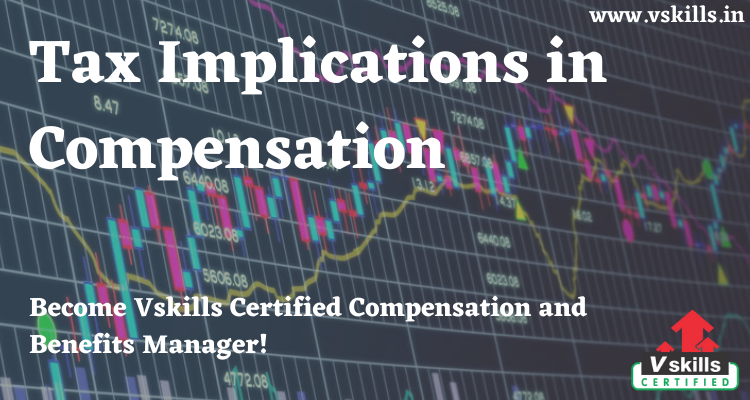Tax Implications in Compensation– The salaries paid to employees of an organization are a mix of allowances and perks which have a separate tax treatment each. These are discussed below:
- Basic: The basic component of the salary is the actual compensation for the work and is fully taxable.
- House Rent Allowance: HRA is given to employees to help them meet the cost of rented accommodation. Tax treatment of HRA is a bit complicated. For this, three amounts need to be calculated,
- Actual HRA received
- The amount by which rent paid exceeds 1/10th of salary (basic + DA)
- 50% of the salary (basic + DA) if located in Mumbai, Delhi, Kolkata or Chennai and 40% of salary if located elsewhere
The lower of the above three amounts is allowed as a deduction from the HRA received and the rest is considered taxable.
- Supplementary allowance: This allowance is normally given as an additional benefit to employees and is fully taxable.
- Conveyance allowances: A conveyance allowance is paid to employees to compensate them for their travel expenses. It is fully exempt if it is a reimbursement of expenses incurred for official purposes. If it is given to cover the employee’s expenses of traveling from residence to work, it is exempt up to a limit of Rs. 800 p.m. and the rest is taxable.
- Lunch coupons: Many employers provide lunch or lunch coupons to their employees nowadays. These are fully exempt from tax as long as they are not given in cash. There is also no limit laid down by law on the amount that can be paid through such coupons.
- Medical reimbursement: Often medical expenses incurred by the employee or his/her dependants are reimbursed by the employer. Such reimbursements are exempt from tax, up to an amount of Rs. 15,000 p.a.
Become Vskills Certified Compensation and Benefits Manager. Learn the module “Tax Implications in Compensation”. Try the free practice test!
Apply for Compensation and Benefits Certification Now!!
http://www.vskills.in/certification/Certified-Compensation-and-Benefits-Manager



